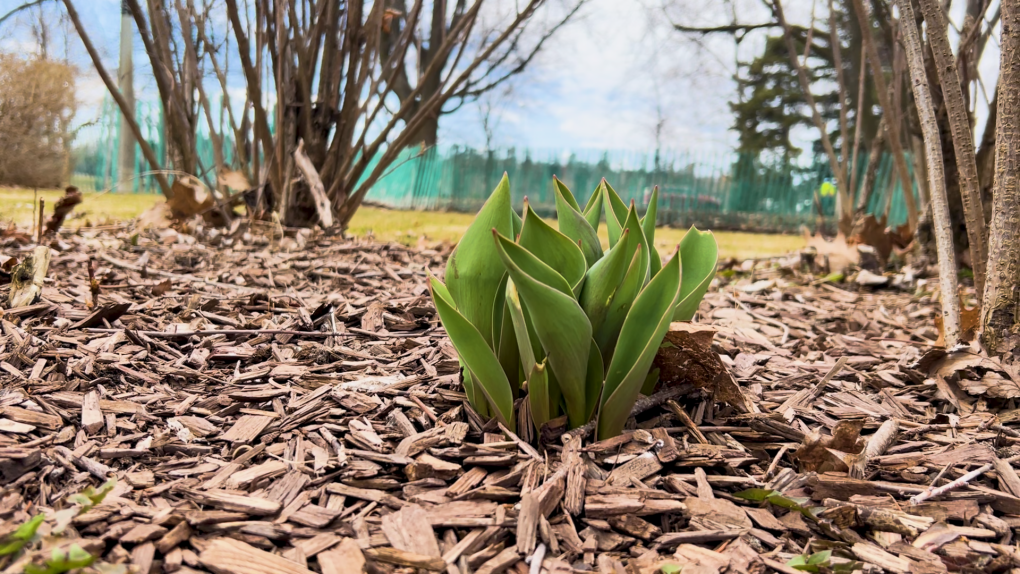Warm weather is in the air and that means plenty of spring plants reemerging.
Tulips and trees are beginning to bloom in Commissioners Park, which was the backdrop for many walkers and cyclists Monday.
But for those who suffer from springtime allergies, the cheery landscape takes a different tone.
“Yeah it can suck here,” said resident Marta Morgan. “I get really sniffly – especially since I live so close to the tulip festival.”
Her assessment may have merit. According to Aerobiology Research Laboratories director Daniel Coates, the Ottawa region ranks as one of the highest in Canada when it comes to pollen levels in the air.
“The season in Ottawa started early this year,” he said.
“It started around early March, we got a cold spell, which saw the pollen levels drop dramatically, but now that we’re entering April, we’re seeing the warmer weather and so it’s going to rise again.”
Coates says the pollen season is getting longer too, with those allergic not seeing a respite until early to mid-June.
“Talk to your allergist, do the tests, see what you’re allergic to,” he said.
“If you know what you’re allergic to, you can take the best precautions to reduce the effect of pollen on your health.”
Coates says residents can monitor specific pollen levels and make appropriate choices, such as choosing to exercise indoors or refraining from drying clothes outside.
 Tulips beginning to sprout in Commissioners Park on April 1, 2024 (Sam Houpt/CTV News)
Tulips beginning to sprout in Commissioners Park on April 1, 2024 (Sam Houpt/CTV News)
Alex McArthur was taking a stroll with his wife and granddaughter Monday morning, an activity that would usually cause him much frustration.
“It was very difficult. I couldn’t breathe, my eyes were very itchy, it wasn’t fun at all,” he recalled.
It took making an appointment with a specialist to make the spring season enjoyable again.
“They did all the allergy testing to figure out what it was, gave me the proper medication, and now I’m good for – they said at least ten years.”
Coates says the coming week will see moderate to high levels of cedar and poplar pollen, and low levels of maple, alder, willow and elm.
“In about two or three weeks, we’re going to start seeing one of the worst ones, which is birch,” he said.